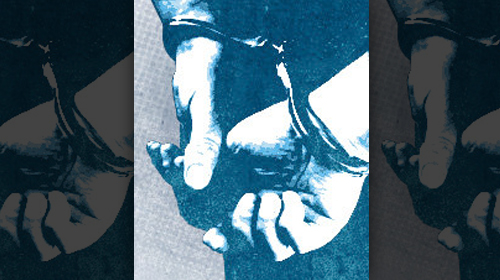Human Rights Groups Urge ICE to End Immigration Detention at Fort Bliss Military Base, Halt Abusive Third-Country Deportations
WASHINGTON — Human rights groups today sent a letter urging U.S. Immigration and Customs Enforcement (ICE) to end immigration detention at Camp East Montana, a massive tent camp at the Fort Bliss military base in El Paso, Texas. Advocates summarized in their letter accounts of horrific conditions, including beatings and sexual abuse by officers against detained immigrants, beatings and coercive threats to compel deportation to third countries, medical neglect, hunger and insufficient food, and denial of meaningful access to counsel, among other rights violations. The letter comes just weeks after Rep. Veronica Escobar warned that people detained at Ft. Bliss were given foul-tasting drinking water, rotten food, and inadequate healthcare.
The letter follows months of interviews with more than 45 detained people at Ft. Bliss and is accompanied by 16 sworn declarations by immigrants detained at the facility. Numerous detained people told lawyers that officers have engaged in a widespread and unreasonable pattern and practice of excessive force, including the use of abusive sexual contact by officers when utilizing force.
One detained teenager using the pseudonym “Samuel” told lawyers he was beaten by officers so severely he sustained injuries across his body, lost consciousness, and had to be taken to a hospital in an ambulance. The letter relays Samuel’s account that his right front tooth broke from the force of being slammed to the ground, and as Samuel attests, one officer “grabbed my testicles and firmly crushed them,” while another “forced his fingers deep into my ears.” Samuel went on to say that while he was feeling “dizzy” and was “fighting to remain conscious,” an officer laughed at Samuel for having a chipped tooth after being slammed to the ground and told Samuel he was “like a little girl.” Samuel said that weeks after the beating, damage to his left ear is so severe that he now has trouble hearing.
In their letter, the groups also reiterate their calls to immediately halt deportations of people to third countries to which they have no genuine ties. Interviewees said that at Ft. Bliss, the prospect of such removals has taken on a particularly abusive character. People detained attested that officers at Ft. Bliss have beaten detained people and used the threat of violence, criminal charges, and imprisonment in attempts to coerce non-Mexican immigrants held at Ft. Bliss to cross the border into the Mexican desert.
Isaac, a Cuban immigrant held at Ft. Bliss, attested in a sworn declaration that officers told him that he was going to be deported to Mexico. Isaac told lawyers that, “the guards hit my head” and “slammed it against the wall approximately ten times.” He also said that officers grabbed and crushed his testicles between their fingers, and that soon after, officers handcuffed Isaac and approximately 20 other people, placed them on a bus, and drove them to the border, where they were informed they could get off the bus and cross into Mexico. Isaac added that officers told them “If we don’t want to go to Mexico, then we would either be sent to a jail cell in El Salvador or Africa.” Isaac is also using a pseudonym to protect his identity.
The letter – which was signed by the American Civil Liberties Union, ACLU of New Mexico, ACLU of Texas, Estrella del Paso, Human Rights Watch, Las Americas Immigrant Advocacy Center, New Mexico Immigrant Law Center, and Texas Civil Rights Project – also follows widespread media coverage detailing abusive conditions. In September 2025, a Washington Post report noted that a leaked internal ICE inspection found the Ft. Bliss facility violated over 60 federal detention standards in the first 50 days of its opening.
The Trump administration hastily opened the sprawling tent camp in August 2025, despite warnings from members of Congress and advocates that the facility would be a humanitarian disaster. The facility is located on the military base formerly used to intern people of Japanese descent during World War II and currently holds over 2,700 people, making it the country’s largest immigration detention center.
The full letter to ICE is available here: https://www.aclu.org/documents/ice-letter-re-fort-bliss
The declarations are available here: https://www.aclu.org/documents/fort-bliss-declarations-december-2025
Affiliates: Texas, New Mexico



